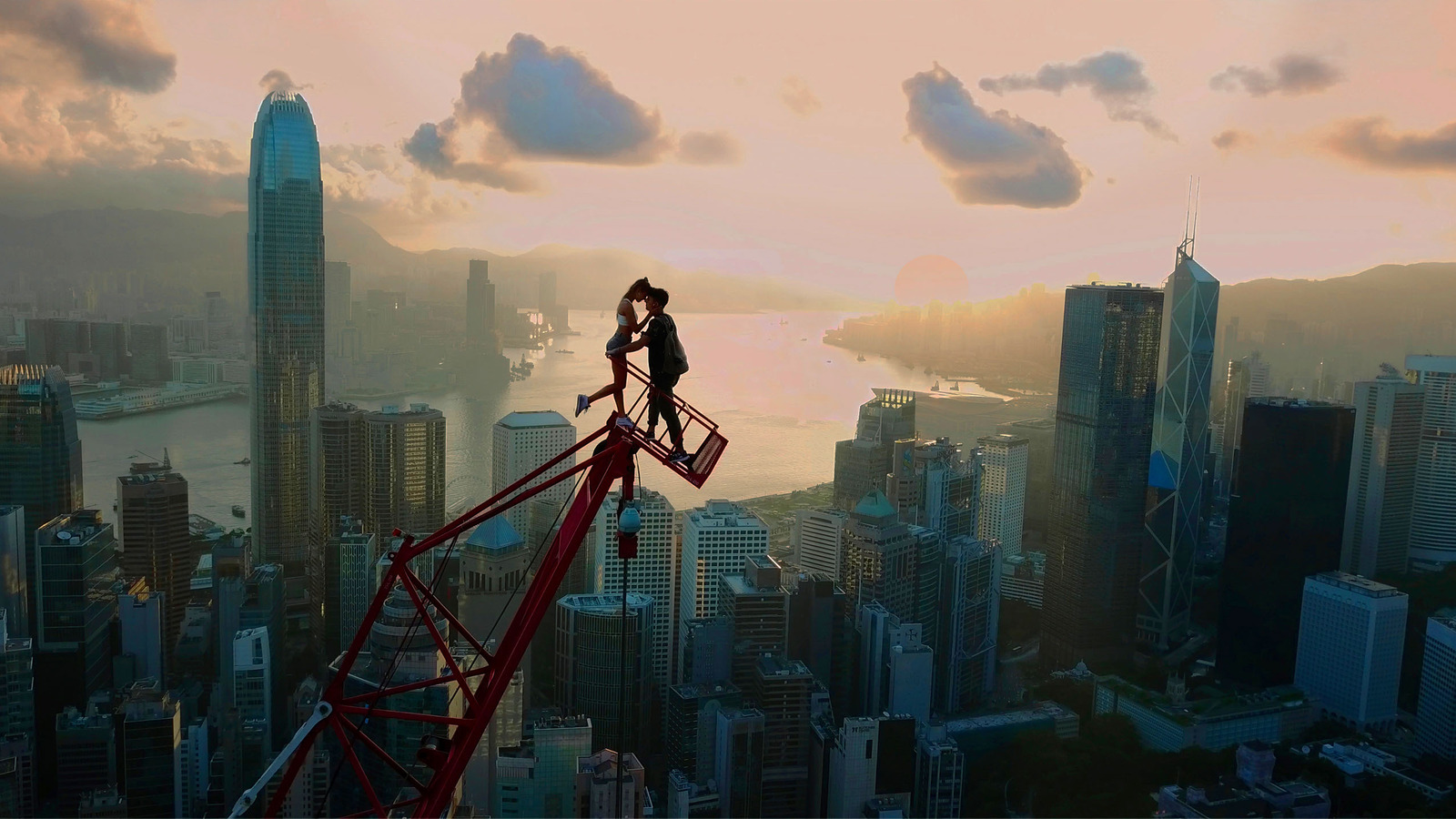[ad_1]

A sizable chunk of “Free Solo” features those filmmakers debating whether or not they should even be up on the mountain capturing shots of Alex Honnold attempting his record-breaking feat, since their very presence might cause him to slip or take a chance that he might not otherwise take. Directors Elizabeth Chai Vasarhelyi and Jimmy Chin also explicitly acknowledge that not only might Alex fall during his climb, but if he does, they and their team of camera operators will be the ones capturing it on camera — a traumatic experience that would obviously leave an unthinkable and lasting impact on them for the rest of their lives. I found that aspect of “Free Solo,” people genuinely contending with the consequences of the climb not only on the subject, but on others, to be as essential as the climbing footage itself. It brought a relatability and humanity to the narrative.
“Skywalkers: A Love Story” seems to be on the opposite end of the ethical spectrum. While it’s ostensibly a love story about similar feats of humanity, is not truly interested in humanity — it’s only interested in its two subjects and doesn’t care about anyone else.
Not once do Vanya and Angela stop to think about the very real fact that they could kill innocent civilians if they fell during one of their climbs. Even if they managed to avoid landing on someone and killing them after plunging thousands of feet through the air, they never think about the life-ruining memory they would inflict on that innocent civilian if they were to splat all over the ground near an unsuspecting person who is just going about their business. They spend the movie spouting maxims like, “Our full potential is on the other side of fear,” “limits only exist in our mind,” and “this isn’t an adrenaline addiction, it’s a commitment to self-growth,” but frankly, I think that’s total bullsh*t. It’s tough to swallow their philosophizing when they’re clearly doing this for social media clout. These empty platitudes are justification for them to continue doing what they’re doing, and emblematic of a disturbing “me first” mentality that seems to be more and more common these days.
For a second, it seems like Zimbalist might meaningfully confront the specter of death and the protagonists’ relationship to it. At one point, Angela watches shocking videos of two rooftoppers falling from great heights, and late in the movie, she learns that almost every member of her old rooftopping crew has died in scenarios gone awry. Her body physically reacts to that news even if she tries to maintain a cool facade; she temporarily seizes up on her next climb with Vanya, but both she and the film move on from there to continue their mission without a serious moment of reckoning.
[ad_2]
Source link
![This Documentary Wants To Be This Year’s Free Solo, But It’s Missing A Crucial Component [Sundance]](https://newsconscious.com/wp-content/uploads/https://media.npr.org/assets/img/2022/02/26/ap22056522780784_wide-b587d73541577a78d5cc0dd90c77e6f04dbf20fd.jpg?s=1400)
